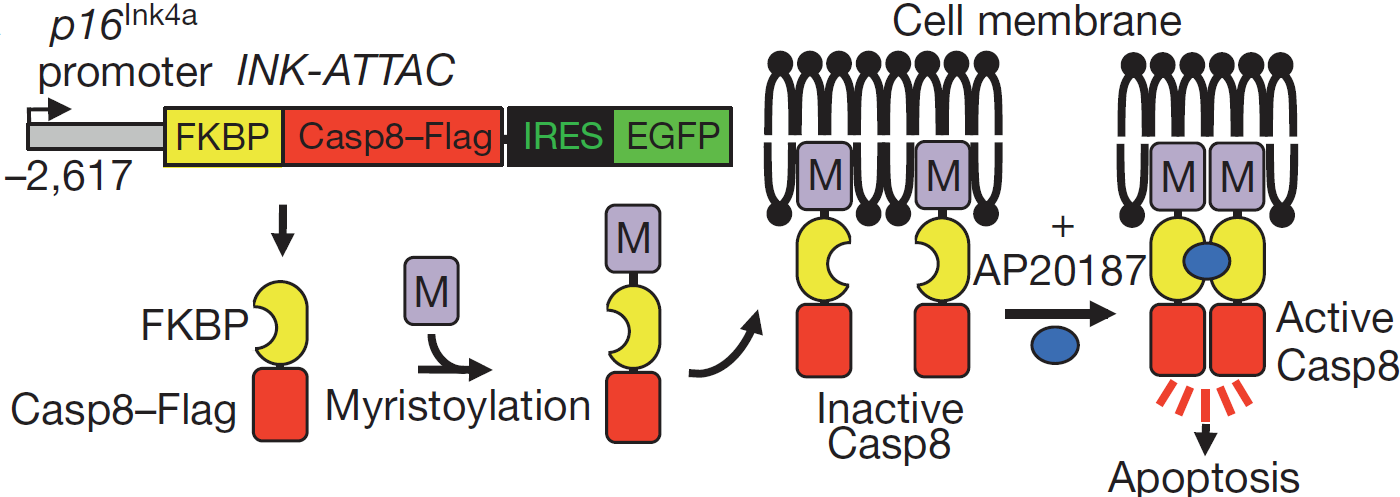How to prevent or slow down age-related disorders
November 3, 2011
Eliminating “deadbeat” cells that accumulate with age could prevent or delay the onset of age-related disorders and disabilities, Mayo Clinic researchers have shown.
The researchers genetically engineered mice so their senescent cells harbored a molecule called caspase 8 that was only turned on in the presence of a drug with no effect on normal cells. When the transgenic mice were exposed to this drug, caspase 8 was activated and killed the senescent cells.
The researchers found that lifelong elimination of senescent cells delayed the onset of age-related disorders such as cataracts and muscle loss and weakness, and that removing these cells later in life could slow the progression of already established age-related disorders.
Ref.: Darren J. Baker et al., Clearance of p16Ink4a-positive senescent cells delays ageing-associated disorders, Nature (2011) [DOI: 10.1038/nature10600]
